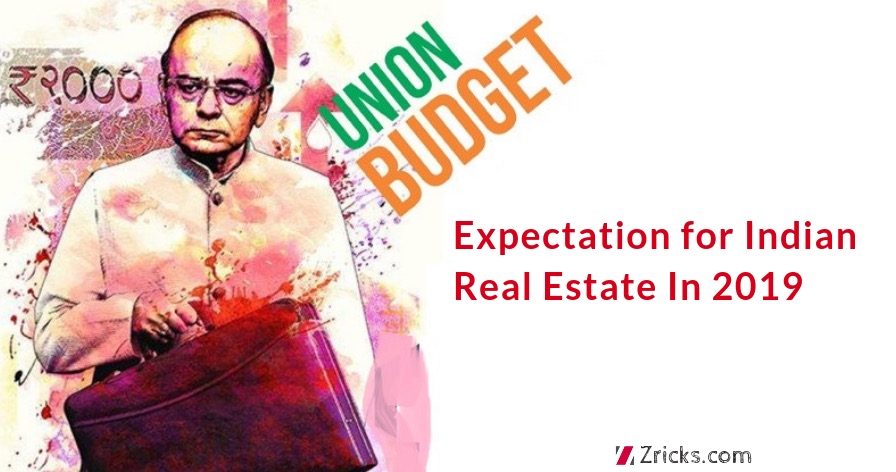Expectations from the Union Budget 2019 for Real Estate
Share Expectations from the Union Budget 2019 for Real Estate
“While there are numerous expectations from the upcoming interim Budget 2019, there a few which we as an industry hope sees the light of day. Firstly, a rationalization of GST in real estate can help create a conducive business environment. Secondly, granting of infrastructure status to the entire sector along the lines of what was done for Affordable housing is another step we hope is taken. Last but not the least, an effective and structured implementation of single window clearance by central and various state governments would contribute significantly to streamline the process within the real estate industry.” - Mr. Madhusudhan G, Chairman and MD, Sumadhura Group.
“Co-working industry is currently fueling the growth of startups and small businesses, and is definitely in sync with the government's vision of Startup India. We have also seen several initiatives from the government including Atal Innovation Mission (AIM) and Self-Employment and Talent Utilization (SETU) to promote the culture of innovation and entrepreneurship. Similarly, I feel that a lot more alignment can come in from the government including the provision of incentives and support to the co-working players who cater to the startup segment. It is time we expect some specific schemes to the co-working segment as well, similar in fashion to what we saw with the STPI scheme in the early 90s.
The governments initiative of bring in GST has been beneficial for the sector as co-working is a service business and a substantial amount of money is spent on the interiors, and GST has simplified the taxation process to a different level. Having said that enabling the co- working players to claim Input Tax credit on work contract and construction supplies would curb the outflow of cash to a very large extent. This in turn will significantly aid the growth of the co- working business wherein, the input tax credit if extended to the developers is also passed on to co-working players who lease out space, will reduce the overall cost.
However, the current co-working industry is being affected by TDS. The tax is being doubly levied as it is deducted from the co-working player when the property is leased from builders as well as when it is given in rent to the clients. So, it becomes important to support the players and leverage the co-working sector by bringing down the TDS, considering that co-working is a business where the operator is not owning the property. I believe, here the tax should be applicable only on the value addition and not on the entire property.” - Mr. Rishi Das, Co-founder and Chairman, IndiQube, a leading managed workspace/ co-working space provider on ‘the expectations of co-working/ managed workspace industry from union budget 2019.
"We are expecting a thorough examination and revision of GST rates of building materials. Rational and uniform GST rates should be brought to the forefront. For instance, cement is placed at 28% which exorbitantly high for retail consumers. The government should think of segregating the rates for a B2B consumer and a normal B2C consumer.
The government has recently hinted that all the building materials will be brought to a 5% GST slab. If the proposal is really executed, it will bring a big transformation to the construction sector. This will also ease the burden from the small traders. If this revision can be followed with other building materials such as sanitary ware, insulated wire and ceramic tiles; a reduction in GST on building materials will help consumers to go for housing at good budgets without burdening themselves.
The existing Pradhan Mantri Awas Yojana scheme has to be made little more flexible for rural areas and semi-urban areas. The government should introduce slab systems in terms of tax incentives in such areas. The dream to own a house is still elusive for certain segments and it’s up to the government to revise its tax structure for first-time homeowners.
The government should also plan to invest more in the infrastructure. This will not only attract investments but also boost construction and building materials industry in general. Finally, the government should introduce flexible income tax incentives for the affordable housing industry, thereby reducing the indirect financial burden on buyers" - Mr. Ashwin Reddy, Managing Director, Aparna Enterprises Ltd.
Request a Call Back

